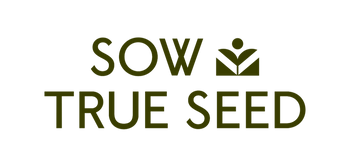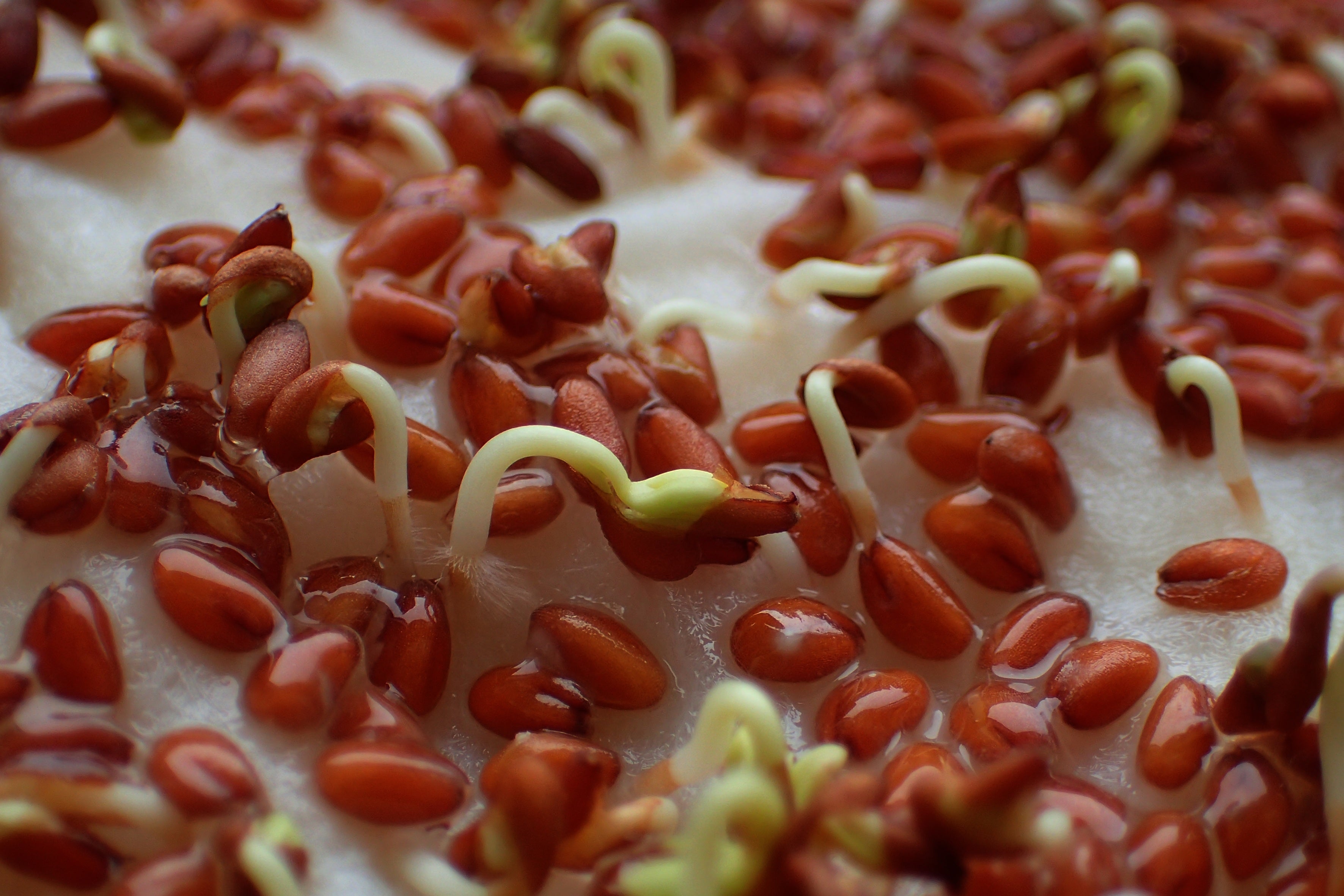We get asked a lot about what the difference is between different seed types on the market, and how those differences might factor into garden planning. It can be very confusing! We put this guide together with the hopes that it helps clear things up!
Open-Pollinated
Stable, non-hybrid varieties of plants resulting from pollination between the same or genetically similar parents. This is possibly one of the most confusing terms in our industry, because other seed companies have done such a good job of branding the word “heirloom” to mean open-pollinated. The truth is that all heirloom seeds are open-pollinated, but not all open-pollinated seeds are heirloom. All open-pollinated seeds can be saved year on year and grow true to type with proper saving practices. True-to-type means that when you save the seed from the variety you are growing, and replant the next year, it will grow the same. For example, your Cherokee Purple tomato, will grow again into a Cherokee Purple tomato. Not all OP seeds are freely on the public domain. Some new breeders choose to register or protect their seeds from being sold without their consent. At Sow True Seed, because the cornerstone of our principles are that no one should own seed but the person growing it, we do not sell any varieties that are under a PVP or utility patent.
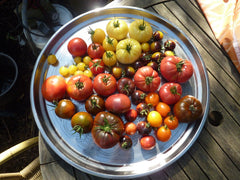
Heirloom
Many of the varieties that Sow True Seed offers are heirlooms, meaning they are not only open-pollinated, but have been passed down through generations due to their outstanding qualities. This may include unique flavor, disease resistance, or storability. There is some dispute in the seed world about when a seed should be considered an Heirloom. The accepted consensus has been that these varieties have been in circulation since before World War II, prior to the commercial introduction of F-1 hybrids and the changes that resulted in the domination of "Big Agriculture." As time marches on though, many folks believe that the designation should be applied to any seed older than 50 years, and that the date should continue rolling forward with time.
Organic
Many of the varieties offered by Sow True Seed are certified USDA organic. While we feel that organic is a direction in which we all need to be heading, we understand the challenges smaller farmers may face in becoming USDA certified. We are proud to support the farmers who utilize organic standards or practice biodynamic growing methods even though not technically certified. Seed that is not certified organic can still be grown completely organically by you in your gardens.
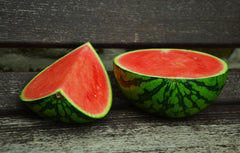
Hybrid or F-1
A hybrid seed is created when the pollen from two different plant varieties are crossed. The seed of the first generation of this crossing is called an F1, and will/should have F1 following its name, or somewhere in its description. This resulting cross produces the traits desired by the breeder, for example, this is how seedless watermelons are created. Subsequent generations of seed however, if saved, will not grow "true-to-type" when replanted the following season. (Hybrids should not be confused with GMO’s. A seedless watermelon is a deliberate cross of different watermelon pollen in order to achieve a melon with little or no seeds, but still retains 100% watermelon DNA. GMO varieties are called Frankenfoods because the genes can be altered to include many things not related to the original seed structure.) In some instances, the hybridization of plant varieties has helped to create new varieties that are helpful to farmers, including: disease resistance, higher sugar content, and more tolerance to extreme temperature fluctuations. Most of the fruit and vegetable varieties you see in the grocery store are hybrids. Sow True Seed is not so much "anti-hybrid," but instead is simply "pro open-pollinated." Farmers and gardeners who plant hybrid seed are dependent on the seed producers. We want our gardeners and market farmers to be able to save their seeds and therefore ensure their own genetic and region-specific diversity.
GMO
GMO- Also known as GE, or Genetically Engineered. Unlike open-pollinated/heirloom, non-hybrid, and hybrid varieties, genetically modified (GM) plants are not created through a natural pollination process. GM organisms (GMOs) are created by inserting genetic material from one source (such as bacteria, fungus, insect, or animal) into another. While GM seeds can usually reproduce, they will not likely grow true to type, and the genetic material is patented, which makes saving the seed illegal. As a result, farmers have faced devastating legal battles -and worse- for saving seed contaminated by GMOs. There is also evidence that GMO crops have detrimental effects on our insect populations. While the science is frustratingly mixed on whether or not the presence of Bt in the pollen many GM crops and consumed but pollinating insects is a contributor to their decline, it is worth continued study and attention.

A cornerstone of our business here at Sow True Seed, is encouraging and helping gardeners take control of the seed/food system. To that end we only sell open pollinated seeds, which means that they will grow true to type when saved properly and replanted, and be owned by whoever grows them and saves them. We believe that the roots of independence and self-sufficiency derive from the ability to save seed. Open-pollinated varieties are more genetically diverse and are able to adapt faster to their growing region and specific climate variances. Each open-pollinated variety remains protected in the public domain as the common property of everyone. We believe seeds should be owned by you, your children, and anyone you want to share them with.
I hope this helps make some of the terminology clearer on what you might want to look for or ask for when planning your next garden.
| |
Article Written by: Angie Lavezzo |
|
About the Author: Angie Lavezzo is the former general manager of Sow True Seed. Beyond her professional role at Sow True, Angie's passion for gardening extends into personal hands-on experience, fostering plants and reaping bountiful harvests. |
